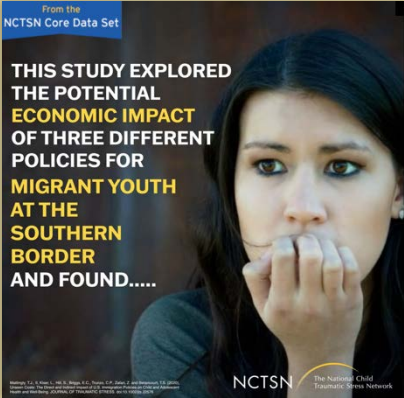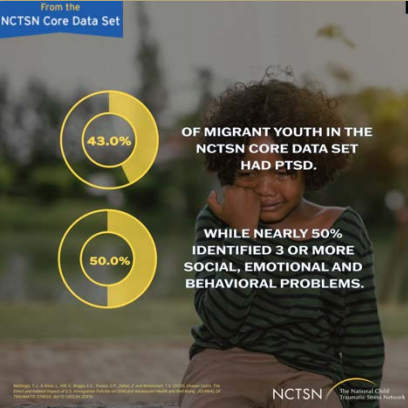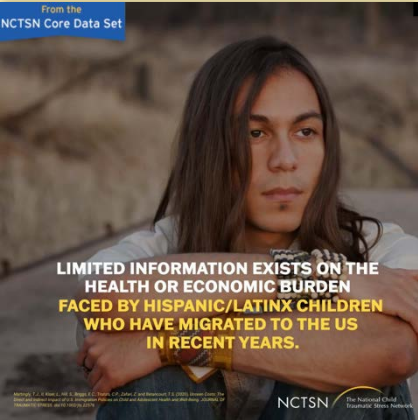NCTSN Unseen Costs Paper and Social Media Campaign
Unseen Costs: The Direct and Indirect of U.S. Immigration Policies on Child and Adolescent Health and Well‐Being | Read the paper here!
Social Media Campaign
 Traumatic separation between migrant children and their parents can have detrimental effects on the physical and mental health of these children, particularly for those who have experienced trauma before or during migration. Unseen Costs: The Direct and Indirect Impact of U.S. Immigration Policies on Child and Adolescent Health and Well‐Being explores the direct and indirect health‐related costs of shifting immigration policies at the southern border.
Traumatic separation between migrant children and their parents can have detrimental effects on the physical and mental health of these children, particularly for those who have experienced trauma before or during migration. Unseen Costs: The Direct and Indirect Impact of U.S. Immigration Policies on Child and Adolescent Health and Well‐Being explores the direct and indirect health‐related costs of shifting immigration policies at the southern border.
 Children exposed to traumatic experiences are at an increased risk of a range of detrimental health outcomes, including but not limited to PTSD, anxiety, depression, and sleep disorders. These risks are heightened for migrant children who have experienced trauma within their family and in their country of origin. The forcible separation between migrant children and their parents may increase the likelihood of trauma exposure and can have harmful effects on the well-being of these children. Unseen Costs: The Direct and Indirect of U.S. Immigration Policies on Child and Adolescent Health and Well‐Being explores the economic concerns related to shifting immigration policies at the southern border.
Children exposed to traumatic experiences are at an increased risk of a range of detrimental health outcomes, including but not limited to PTSD, anxiety, depression, and sleep disorders. These risks are heightened for migrant children who have experienced trauma within their family and in their country of origin. The forcible separation between migrant children and their parents may increase the likelihood of trauma exposure and can have harmful effects on the well-being of these children. Unseen Costs: The Direct and Indirect of U.S. Immigration Policies on Child and Adolescent Health and Well‐Being explores the economic concerns related to shifting immigration policies at the southern border.
 Preserving the family unit is an important part of preventing the negative effects of traumatic separation on migrant children. Unseen Costs: The Direct and Indirect Impact of U.S. Immigration Policies on Child and Adolescent Health and Well‐ Being utilizes the NCTSN–CDS to investigate the potential impact of separating migrant children and adolescents from parents, compared with previous immigration policies.
Preserving the family unit is an important part of preventing the negative effects of traumatic separation on migrant children. Unseen Costs: The Direct and Indirect Impact of U.S. Immigration Policies on Child and Adolescent Health and Well‐ Being utilizes the NCTSN–CDS to investigate the potential impact of separating migrant children and adolescents from parents, compared with previous immigration policies.